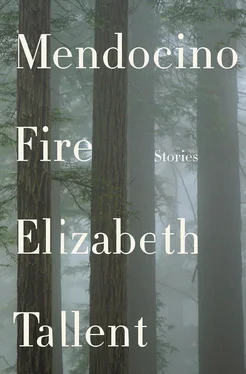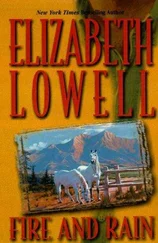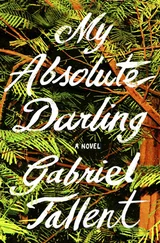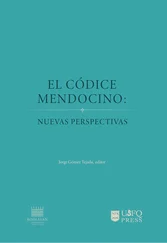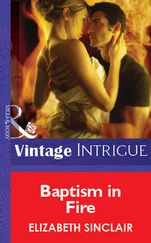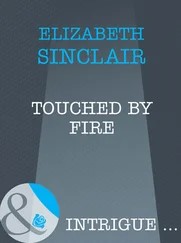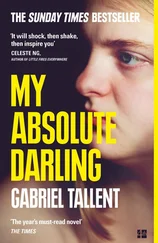Long ago, when she was a new professor with a new professor’s keen motivation, she took the trouble to think of really good answers to certain questions students asked, and the trouble she took then has paid off ever since, because the answers can be revised according to the times, some needing more revision than others, but her original responses continue to strike her as sufficient, and form a sort of core around which revision can take place, and the questions haven’t changed. Really there are only twelve or so main ones, at least in her life. Around those, a haze or shimmer of worries and intimations that can’t quite materialize into questions. Anxieties like droplets lacking the particles of dust or grit they need to coalesce into clouds. Things they fear. Questions she could not answer anyway.
In her mind she answers the professor, who is no longer alive to hear what she wants on her gravestone — not that she plans to have a gravestone, because she wants to be cremated, and despite her fear of death is consoled by the notion of ending up as ashes, why she’s not sure: their vulnerability to dispersion suits her, as does their incorruptibility, the fact that nothing further can be done to ashes, that in their lack of ambition regarding immortality ashes are the opposite of those eyes she gazed into in the museum. In her mind he asks his question, which for all she knows he’s in the habit of asking as a disconcerting, cut-to-the-chase, what are you really like? refinement of flirtation whose bad-boy contempt for the usual niceties at least some women would respond to. She had responded, not in the way he hoped, not with equal and opposite impudence, but with the awkwardness of needing to think before talking, an awkwardness despised at her university, a trait she mostly hid, but not that evening and not with him, and he hadn’t liked that, and hadn’t liked her answer, so they parted and not long afterward lost touch and she was left answering him in her mind, saying yes, there was something she’d like, just one word, on her gravestone. Reader. And in her mind he loves this answer.
For instance, a student will ask whether reading critically and interpreting — beginning to study literature —will cause the student to stop loving reading, because the student thinks there’s a risk of this, and that is what the student never ever wants to happen. And what is the answer? Is it right to reassure the student, when after all the professor doesn’t know how it will go for that student, she knows only how it went for her? Well, she says, in my experience, she says, the more someone learns about an intricate thing, like, say, the human heart — the more a surgeon knows about that heart, right? — the deeper in , the more beautiful the thing seems, and by thing I mean a heart or a book, either one. Then the student says thank you and goes away. But the professor does not know any heart surgeons and has never asked any of them if what they feel is wonder. She made that up.
Only when she is well away from that roundabout, settled into her favorite corner of the couch in her office; only in this quiet, narrowing her pointed eyes in pleasure in an interval of aloneness she has no right to, because they should be here, the students, they’ve said they’re going to come by and one of them will knock on the door any second, meaning the value of this interval, the preface to losing oneself in a book, is heightened by her awareness of its likely end; only in the particular space created by unexpected liberty (in which thinking her own thoughts has a stolen or illegitimate savor) does she grasp the real reason for her love of standing motionless in the bicycle onslaught, in the student whirlwind. As usual, the real reason has been expertly swaddled in and obscured by false, lesser reasons, attractive in and of themselves. Oh yes there is pleasure in being unmoved in the midst of an every-which-way assault. But also, this is like her life. They come at her from every direction! They never touch her! No. That’s not it, not the bottommost layer, not the meaning revealed only when other meanings are peeled away, whose existence you only ever discover if peeling is a habit, if you love this deft quiet work of lifting away length of gauze after length of gauze to find the true face. Down down down down down and down. They mean something, these almost-winged cyclists, in their seriousness and lightness, their concentration, in their searchingness that must discern every signal or else , in their absorption. This is reading. No wonder she loves standing there: in the middle of a steady cascade of virtuoso reading on which their lives depend.
It could be, she tells herself, that apart from your work and your teaching you do not have enough going for you, that you need to get out more, that due to your aloneness — which we’re not going to call loneliness because it’s not that; it’s a deliberate, cultured, desirable, nonnegotiable state, necessary if you want to get work done, intelligent aloneness, good aloneness; it has a point! — your students matter too much. At least you have to ask yourself once in a while, you have to check in regarding whether or not it is wrong, what you feel for them, the students. Without fail you need to recognize that the easiest transition love ever makes is into coercion, and that your most useful quality as far as students are concerned is dis interestedness. You’ve said often enough that you love teaching, but you have never said the truer thing, which is that you love your students, because it would only worry everyone to hear it, it would worry even you, and it might not even be true, because there is, remember, the risk that aloneness has exaggerated what you feel for them. Which may not be love, but some minor, teacherly emotion that nobody has ever bothered to give a name. Who were they, the people who figured out what the emotions were, and how many of them would be recognized and named, and which shadings or gradations could safely be ignored — who were they, these feeling namers, and what did they have against shades of gray?
The students rarely embark on a difficult or painful subject without some sort of rhetorical exit strategy. There is almost no sorrow they can’t disown with an immediate laugh, designed to prevent the professor from realizing that she has glimpsed genuine emotion. After many years as a professor it still strikes her as unnatural that students, that people , fear what she might think: Who the fuck is she? But they watch her eyes for what she’s thinking. Will she say something actually useful to them, or something they in their desperation (because sometimes it is desperation) can twist into usefulness, which will be more useful for coming from her, the professor? What can she tell them about what comes next?
In the corner of the couch, with a titanium-sheathed machine balanced partly on the arm of the couch and partly on one raised knee, the professor clicks through the forests and clearings of a few contested acres. Mild and unexceptional except for being somewhat forlorn, these acres, sad in the way of woods that don’t thrive, lacking the cannons, the plaques, the bronze generals on horseback that tell you blood was shed here. The Wilderness, this battlefield is called. Walmart wants this particular scrap of the Wilderness for a supercenter whose aisles will be lined with toys for the children of tourists drawn to other, already protected acres of battlefield. There is no telling from these unphotogenic, scantily wooded hills that her great-great-grandfather was badly wounded here. If he had died, he would have been one among thirty thousand, and she, of course, would never have existed. He lived — the War Department records his new status as prisoner of war, sent by train to Fort Delaware, also known as Pea Patch Island. The professor both likes and hates the irony, the sunny potager promised by the name Pea Patch Island and the reality of filth and exposure and fever and starvation, tainted water and maggoty flour, that befell him at nineteen. Was he as alive to himself as she is to herself, did he feel as real ? If he flexed his fingers or studied the lines intersecting and diverging in the palm, did he marvel? The deepest despair, the blackest pitch of disillusion about humankind: those are what she imagines, envisioning his emotions in the prison camp, but these conjectures could be wrong. He is remote in time and culture. Consolations that seem to her the most childish lies and self-deceptions might have been his salvation. Not books, but Book, the King James Version. He might, if time were transcended and he could know her and what she thinks and what she teaches her students and her preference for ambiguity over conviction and her godlessness, turn his savage Civil War eyes on her, his billy goat beard, his cavalryman’s uprightness, his gaunt authority, and renounce her, his distant child. A cousin emailed the professor the only known photograph of him, a slouch-hatted elderly figure astride a sorrel horse, and even in this image, no bigger than a matchbook, and even in extreme old age, he is plainly someone to reckon with. From the year 2015 she gazes into the pixels that comprise his gaze. Back to the home page of the historical trust fighting Walmart, and with several clicks of the mouse, she “buys” an acre of these woods where he lay wounded, and while she is aware such ownership is merely honorary, a contribution toward the trust’s large-scale purchase, she chooses to believe her mouseclick has saved the exact patch of earth once stained with her great-great’s blood from becoming a parking lot. Her in-box dings with instant thanks from a computer in the trust’s distant offices. It’s his thanks she wants to come dinging in. She is amused at herself, though there are tears in her eyes, for longing to connect to that long-ago, unknowable, very likely hostile old man. For whom she’s somehow as lonely as if she had once been a child cradled in his arms, as if, leaning down so his mouth was close to her ear, he had said her name, and then said Listen , and then told her the story that was the story within all the other stories of her life, the oldest and most beautiful and farthest back, the one that would elude death forever and ever and ever amen.
Читать дальше
